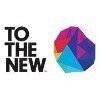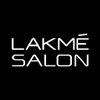Business Owner
20+ Business Owner Interview Questions and Answers
Asked in Sankalp Management Consultancy

Q. What makes the organization so secure in financial terms? Is it HR, Technology, company reputation, viable brands and so on? Be specific and support your data with facts.
The organization's financial security is based on a combination of factors including strong financial management, diversified revenue streams, and a solid reputation.
Strong financial management practices ensure that the organization is able to effectively manage its resources and make informed financial decisions.
Diversified revenue streams help to mitigate financial risk and ensure that the organization is not overly reliant on any one source of income.
A solid reputation hel...read more
Asked in Sankalp Management Consultancy

Q. How do employees perceive the managerial behavior of Managers in general?
Employees perceive managerial behavior as a mix of positive and negative traits.
Managers who are approachable, communicative, and supportive are perceived positively.
Managers who are authoritarian, micromanaging, and unresponsive are perceived negatively.
Employees also value managers who provide clear expectations, feedback, and recognition.
However, managers who play favorites, show bias, or lack integrity are perceived negatively.
Overall, employees perceive managerial behavi...read more
Business Owner Interview Questions and Answers for Freshers
Asked in The White Moon Cafe

Q. How do you calm down a customer who is angry?
Listen actively, empathize, apologize, offer solutions, and follow up.
Listen to the customer's concerns without interrupting.
Empathize with the customer's emotions and show understanding.
Apologize for any inconvenience caused, even if it wasn't directly your fault.
Offer solutions to address the customer's issue and make things right.
Follow up with the customer to ensure their satisfaction and build trust.
Asked in The White Moon Cafe

Q. If a customer approaches you to plan an event, how will you handle it?
I will ensure to understand the customer's requirements, provide personalized service, and communicate effectively throughout the event.
Listen attentively to the customer's needs and preferences
Offer personalized event planning options tailored to the customer's budget and vision
Maintain open communication with the customer before, during, and after the event
Provide exceptional customer service to ensure a successful and memorable event

Asked in Rakeitin Salesforce

Q. Why are you choosing to work in a target-based job?
I am drawn to target-based roles as they challenge me to excel, drive results, and contribute to the company's growth.
I thrive in environments where I can set and achieve specific goals, such as increasing sales by 20% in a quarter.
Target-based jobs motivate me to push my limits, like when I successfully led a team to exceed our annual revenue target.
I enjoy the sense of accomplishment that comes from meeting targets, similar to how I felt when I launched a new product that e...read more
Asked in Sankalp Management Consultancy

Q. Can you articulate one particular learning that added huge value to your learning kit?
Learning to prioritize tasks based on their importance and urgency.
Using the Eisenhower Matrix to categorize tasks
Focusing on important and urgent tasks first
Delegating or eliminating tasks that are not important or urgent
Avoiding procrastination and staying organized
Example: Prioritizing a project deadline over a non-urgent meeting
Business Owner Jobs


Asked in The White Moon Cafe

Q. What is the most important thing to a customer?
The most important thing in the customer is understanding their needs and providing excellent service.
Understanding the customer's needs and preferences
Providing excellent customer service
Building trust and loyalty
Listening to feedback and making improvements
Creating a positive customer experience
Asked in CZ Glam

Q. How do you respond to a client when they are comparing your products with others?
Acknowledge the comparison, highlight unique features, offer personalized solutions, provide testimonials or case studies
Acknowledge the client's comparison and thank them for considering your products
Highlight the unique features and benefits of your products that set them apart from competitors
Offer personalized solutions based on the client's specific needs or preferences
Provide testimonials or case studies from satisfied customers who have chosen your products over others
Share interview questions and help millions of jobseekers 🌟

Asked in Om Prakash Trading Company

Q. There are two glasses, one full of water and another empty. How can you empty both glasses without shifting water from one to the other?
Pour the water from the full glass into the empty glass, then pour it back into the original glass.
Pour the water from the full glass into the empty glass.
Empty the original glass.
Pour the water back from the empty glass into the original glass.
Asked in Model Paper Cup Udhyog

Q. How do you manage yourself according to customer needs?
I prioritize customer needs by actively listening, adapting to their preferences, and providing personalized solutions.
I actively listen to customers to understand their needs and preferences.
I adapt my approach to meet their specific needs and preferences.
I provide personalized solutions that address their unique needs and concerns.
For example, if a customer is looking for a specific product, I will work with them to find the best option that meets their needs and budget.
Asked in Sankalp Management Consultancy

Q. How will you document your learning?
I will document my learning through various methods.
Taking detailed notes during training sessions and meetings
Creating a knowledge base or wiki to store information
Recording important insights and lessons learned in a journal
Participating in online forums and communities to share and learn from others
Attending conferences, workshops, and webinars to expand knowledge
Seeking feedback from mentors and colleagues to identify areas for improvement
Asked in The White Moon Cafe

Q. How do you reduce cafe expenses?
To reduce cafe expenses, focus on optimizing inventory, energy usage, labor costs, and supplier negotiations.
Optimize inventory management to reduce waste and overstock
Implement energy-saving measures to lower utility bills
Streamline operations to reduce labor costs
Negotiate with suppliers for better pricing and discounts
Asked in CZ Glam

Q. How do you handle an angry client?
Listen actively, stay calm, empathize, apologize if necessary, offer solutions, follow up.
Listen actively to the client's concerns without interrupting.
Stay calm and composed to avoid escalating the situation.
Empathize with the client's feelings and acknowledge their frustration.
Apologize if necessary, even if it's not your fault, to show understanding.
Offer solutions to address the client's issues and try to find a resolution.
Follow up with the client after the situation has...read more

Asked in Rakeitin Salesforce

Q. Apart from the information in your resume, tell me about yourself.
I am a passionate entrepreneur with a diverse background in business management and a commitment to innovation and growth.
I have over 10 years of experience in the retail industry, successfully managing multiple stores and increasing sales by 30%.
I founded a tech startup that developed an app for small businesses, which gained over 5,000 users in its first year.
I prioritize team development and have implemented training programs that improved employee retention by 25%.
I am de...read more
Asked in MobileFixit

Q. Which mobile phone did you repair?
I repair various models of mobile phones including iPhones, Samsung Galaxy, and Google Pixel.
iPhones
Samsung Galaxy
Google Pixel

Asked in TechKritika Software LLP

Q. What is a Virtual Class in Java?
A virtual class in Java is a class that cannot be instantiated directly but can be extended by other classes.
Virtual classes are used as base classes for other classes to inherit from
They are declared using the 'abstract' keyword
Virtual classes can have abstract methods that must be implemented by subclasses

Asked in Teleperformance

Q. What is E-commerce?
E-commerce refers to buying and selling goods or services online.
E-commerce allows businesses to reach a wider audience and operate 24/7
Examples include Amazon, eBay, and Shopify
E-commerce can involve various payment methods such as credit cards, PayPal, and cryptocurrency

Asked in TechKritika Software LLP

Q. What are the key differences between Java and JavaScript?
Java is a general-purpose programming language, while JavaScript is a scripting language primarily used for web development.
Java is a statically typed language, while JavaScript is dynamically typed.
Java is compiled and runs on the Java Virtual Machine (JVM), while JavaScript is interpreted and runs in the browser.
Java is used for building standalone applications, server-side applications, and Android apps, while JavaScript is mainly used for client-side web development.
Java ...read more

Asked in Rakeitin Salesforce

Q. B2B and B2C difference
B2B refers to business-to-business transactions while B2C refers to business-to-consumer transactions.
B2B involves selling products or services to other businesses while B2C involves selling products or services directly to consumers.
B2B transactions are usually larger in volume and involve longer sales cycles while B2C transactions are smaller and have shorter sales cycles.
B2B marketing focuses on building relationships and providing solutions to business needs while B2C mar...read more

Asked in TechKritika Software LLP

Q. What is OOP in Java?
OOP in Java stands for Object-Oriented Programming, a programming paradigm that uses objects to design applications.
OOP in Java focuses on creating objects that contain data and methods to manipulate that data.
It involves concepts like classes, objects, inheritance, polymorphism, and encapsulation.
For example, a class 'Car' can have objects like 'Toyota', 'Honda', etc. with methods like 'drive()' and 'stop()'.
Asked in Taj Watch & Electronics

Q. What is a crown? Please provide a brief explanation.
A crown is a decorative headpiece worn by a monarch or a symbol of authority and power.
A crown is typically made of precious metals like gold or silver.
It is often adorned with gemstones or other decorative elements.
Crown is worn by kings, queens, and other royalty as a symbol of their status and power.
In some cultures, crowns are also used in religious ceremonies or as part of traditional costumes.
Examples of famous crowns include the Crown Jewels of the United Kingdom and t...read more

Asked in TO THE NEW

Q. What are the differences between a left join and a right join?
Left join includes all records from the left table and matching records from the right table, while right join includes all records from the right table and matching records from the left table.
Left join keeps all records from the left table, even if there are no matches in the right table.
Right join keeps all records from the right table, even if there are no matches in the left table.
Example: Left join - SELECT * FROM table1 LEFT JOIN table2 ON table1.id = table2.id;
Example...read more

Asked in TechKritika Software LLP

Q. DDL vs DCL vs DML
DDL, DCL, and DML are different types of SQL commands used for managing databases.
DDL (Data Definition Language) is used to define the structure of database objects like tables, indexes, etc. Examples include CREATE, ALTER, DROP.
DCL (Data Control Language) is used to control access to data in the database. Examples include GRANT, REVOKE.
DML (Data Manipulation Language) is used to manipulate data in the database. Examples include SELECT, INSERT, UPDATE, DELETE.
Interview Questions of Similar Designations
Interview Experiences of Popular Companies






Calculate your in-hand salary
Confused about how your in-hand salary is calculated? Enter your annual salary (CTC) and get your in-hand salary


Reviews
Interviews
Salaries
Users










